#Moral Decay
Text
jujutsu kaisen came back and not a single one of you rang the alarm to inform the streets? we used to be a community
53 notes
·
View notes
Text
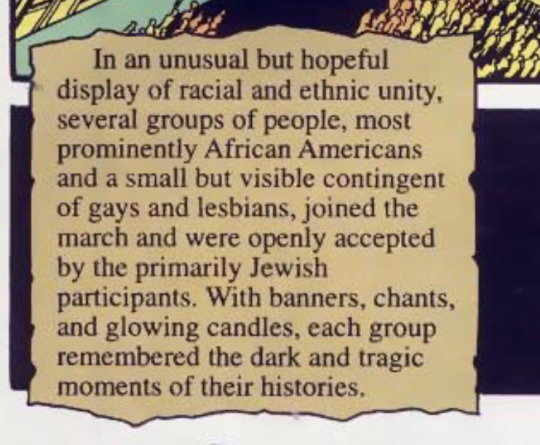
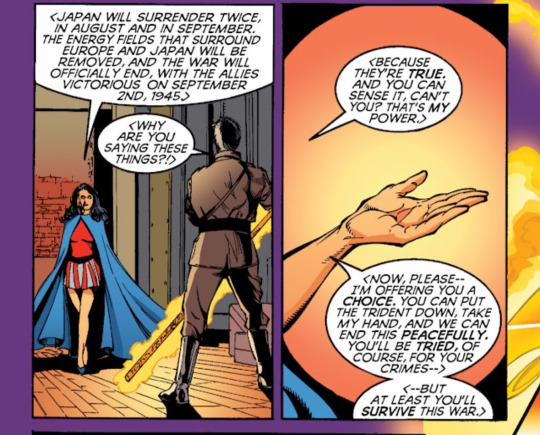
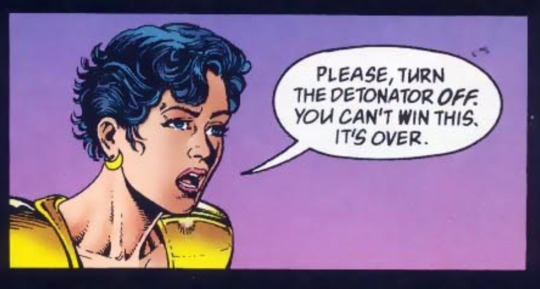
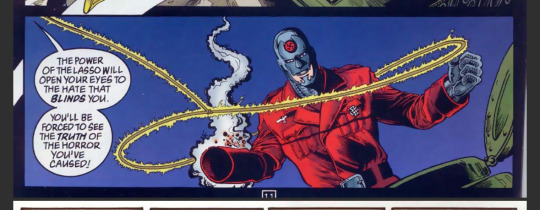
can phil jimenez for once in his god damn life, not be a disgusting liberal virtue signaler for once
using “unusual but hopeful” to describe holocaust victims, writing that 3 years after the oklahoma city bombing, and having the goddamn gall to wax lyrical about keeping the moral high ground.
are you really going to waste your time trying to reason with people who are beyond saving? god i hope he never becomes a hostage negotiator
progressive, but how much do you think DC comics pays him to create shit like this?
more importantly
what kind of person chooses to waste their time writing and openly drawing nazi imagery?
#capitalism#moral decay#anti capitalism#western liberalism#anti liberalism#liberalism is a mental disorder#dc comics#corrupt industry#virtue signaling#politics#leftism
9 notes
·
View notes
Photo


(via GIPHY)
#giphy#animation#cartoon#cartoon network#bubbles#my edit#blossom#powerpuff girls#ppg#buttercup#cartoon gifs#1990s cartoons#powerpuff girls 1998#cartoon network gifs#powerpuff girls gifs#powerpuff girls edit#powerpuffgirlsedits#my gifs#source: giphy#moral decay
40 notes
·
View notes
Text
The Way She Sits.

I'm concerned about her morals.

Pica! You need Jesus!
12 notes
·
View notes
Text
The Green Light of Illusion: Unraveling the Enigma of The Great Gatsby
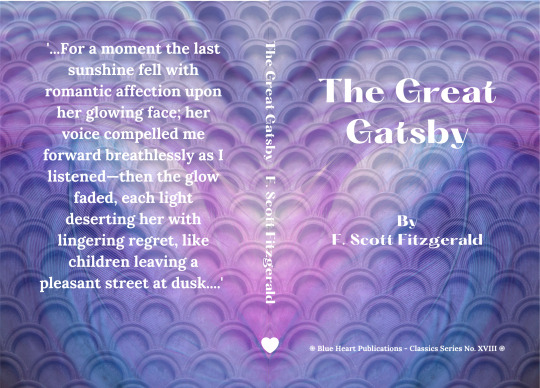
F. Scott Fitzgerald's "The Great Gatsby" is an intricate tapestry woven with the threads of illusion, reality, and the American Dream. Set against the extravagant backdrop of the Roaring Twenties, the novel unfolds through the eyes of Nick Carraway, a Yale graduate and veteran of World War I. Nick finds himself drawn into the enigmatic world of Jay Gatsby, a mysterious millionaire with an insatiable longing for the past and an unwavering pursuit of the unattainable Daisy Buchanan.
The novel is a vivid exploration of the Jazz Age, a period characterized by unprecedented economic prosperity, loosening social mores, and the pursuit of pleasure. Fitzgerald masterfully captures the excesses and superficialities of the time, using Gatsby's extravagant parties as a lens through which the emptiness of the era is exposed. The narrative subtly critiques the moral decay hidden beneath the glitz and glamour, revealing the fragility of societal values.
At the heart of the story is the elusive American Dream, personified by Gatsby's relentless quest for wealth and social status to win back Daisy, the embodiment of his idealized past. The green light at the end of Daisy's dock becomes a powerful symbol, representing both Gatsby's unattainable dreams and the broader illusion of the American Dream itself. Fitzgerald, with eloquence and insight, dissects the hollowness of the pursuit of material success and the ephemeral nature of happiness.
The characters in "The Great Gatsby" are meticulously crafted, each representing a facet of society during this tumultuous period. Gatsby, with his enigmatic persona, stands as a tragic figure emblematic of the illusions people construct to shield themselves from harsh realities. Daisy, a symbol of fleeting beauty and privilege, remains forever out of reach, a mirage that fuels Gatsby's relentless yearning.
Nick Carraway, the novel's narrator, serves as a moral compass, providing a lens through which the reader witnesses the moral decay and the disintegration of dreams. His observations and reflections paint a nuanced picture of the characters and the society they inhabit.
The prose in "The Great Gatsby" is a literary marvel. Fitzgerald's writing is both lyrical and incisive, capturing the essence of an era with a keen eye for detail. The novel's themes of illusion, disillusionment, and the pursuit of an unattainable ideal reverberate through the eloquent prose, making it a work of enduring significance.
"The Great Gatsby" is a timeless exploration of the complexities of the human spirit, societal expectations, and the elusive nature of the American Dream. Fitzgerald's critique of the Jazz Age resonates across generations, inviting readers to ponder the universal themes of love, loss, and the relentless pursuit of dreams.
F. Scott Fitzgerald's "The Great Gatsby" is available in Amazon in paperback 13.99$ and hardcover 20.99$ editions.
Number of pages: 290
Language: English
Rating: 9/10
Link of the book!
Review By: King's Cat
#Roaring Twenties#American Dream#Illusion vs. Reality#Jazz Age#Jay Gatsby#Daisy Buchanan#Nick Carraway#Wealth Disparity#Social Critique#Unattainable Dreams#Extravagance#Moral Decay#Symbolism#Green Light#Social Class#Materialism#Lost Generation#Love and Obsession#Tragedy#Socialite Lifestyle#Prohibition#New York Society#Excess and Decadence#Disillusionment#Romantic Idealism#Pursuit of Happiness#Loyalty and Betrayal#East Egg and West Egg#Character Complexity#Hedonism
4 notes
·
View notes
Text
The Green Light of Illusion: Unraveling the Enigma of The Great Gatsby

F. Scott Fitzgerald's "The Great Gatsby" is an intricate tapestry woven with the threads of illusion, reality, and the American Dream. Set against the extravagant backdrop of the Roaring Twenties, the novel unfolds through the eyes of Nick Carraway, a Yale graduate and veteran of World War I. Nick finds himself drawn into the enigmatic world of Jay Gatsby, a mysterious millionaire with an insatiable longing for the past and an unwavering pursuit of the unattainable Daisy Buchanan.
The novel is a vivid exploration of the Jazz Age, a period characterized by unprecedented economic prosperity, loosening social mores, and the pursuit of pleasure. Fitzgerald masterfully captures the excesses and superficialities of the time, using Gatsby's extravagant parties as a lens through which the emptiness of the era is exposed. The narrative subtly critiques the moral decay hidden beneath the glitz and glamour, revealing the fragility of societal values.
At the heart of the story is the elusive American Dream, personified by Gatsby's relentless quest for wealth and social status to win back Daisy, the embodiment of his idealized past. The green light at the end of Daisy's dock becomes a powerful symbol, representing both Gatsby's unattainable dreams and the broader illusion of the American Dream itself. Fitzgerald, with eloquence and insight, dissects the hollowness of the pursuit of material success and the ephemeral nature of happiness.
The characters in "The Great Gatsby" are meticulously crafted, each representing a facet of society during this tumultuous period. Gatsby, with his enigmatic persona, stands as a tragic figure emblematic of the illusions people construct to shield themselves from harsh realities. Daisy, a symbol of fleeting beauty and privilege, remains forever out of reach, a mirage that fuels Gatsby's relentless yearning.
Nick Carraway, the novel's narrator, serves as a moral compass, providing a lens through which the reader witnesses the moral decay and the disintegration of dreams. His observations and reflections paint a nuanced picture of the characters and the society they inhabit.
The prose in "The Great Gatsby" is a literary marvel. Fitzgerald's writing is both lyrical and incisive, capturing the essence of an era with a keen eye for detail. The novel's themes of illusion, disillusionment, and the pursuit of an unattainable ideal reverberate through the eloquent prose, making it a work of enduring significance.
"The Great Gatsby" is a timeless exploration of the complexities of the human spirit, societal expectations, and the elusive nature of the American Dream. Fitzgerald's critique of the Jazz Age resonates across generations, inviting readers to ponder the universal themes of love, loss, and the relentless pursuit of dreams.
F. Scott Fitzgerald's "The Great Gatsby" is available in Amazon in paperback 13.99$ and hardcover 20.99$ editions.
Number of pages: 290
Language: English
Rating: 9/10
Link of the book!
Review By: King's Cat
#Roaring Twenties#American Dream#Illusion vs. Reality#Jazz Age#Jay Gatsby#Daisy Buchanan#Nick Carraway#Wealth Disparity#Social Critique#Unattainable Dreams#Extravagance#Moral Decay#Symbolism#Green Light#Social Class#Materialism#Lost Generation#Love and Obsession#Tragedy#Socialite Lifestyle#Prohibition#New York Society#Excess and Decadence#Disillusionment#Romantic Idealism#Pursuit of Happiness#Loyalty and Betrayal#East Egg and West Egg#Character Complexity#Hedonism
2 notes
·
View notes
Note
Your thoughts on ''Moral Decay'' episode?Most fans regard it one of the worst episodes in whole series.Buttercup suddenly became a greedy, cruel little monster just for the plot sake, and Blossom and Bubbles weren't better at all- they just let their sister be beaten-up by tons of villains, and then act hugely sadistic, smug over it. I agree Buttercup deserved punishment, but her sisters' attitude was very jarring. And Professor looked totally fine with it and too uncaring of her wounds. Holy...
I don't think it's out of character for Buttercup, and her losing her money is a fair punishment, but I don't recognize Blossom and Bubbles in that ambush scene.
Why even defend these crazed supervillains for getting their teeth knocked out. Because they happened not to be doing anything when it happened? Can't wait for the next time they blow up half the city and torture innocent people. Call me Buttercup, but fork those losers.
But honestly, there's only one real discrepancy in this episode: Why could Buttercup not flee or fight her ambushers?
10 notes
·
View notes
Note
in the powerpuff girls episode moral decay, do you think buttercup getting her teeth knocked out and giving her money to pay for the dentist is punishment enough?
I think it is certainly karmic justice, but it's definitely terrible to have lost most of your teeth. :/
3 notes
·
View notes
Text
Stop blaming gun violence on one issue
It’s not ONLY pathetic gun laws. It’s not ONLY mental health issues. It’s not ONLY a hopeless society. It’s not ONLY desensitization to violence in media. It’s not ONLY the lack of common values and family structure. It’s all of this. So to make this a political thing to line up with whatever your side supports as the root cause and ignore the multidimensionality of this evil is ridiculous and unserious. We have created a reality in which human life is not valued. Bottom line.
#gun violence#mass shootings#gun control#mental illness#moral decay#lost generation#godless society#violence#human dignity#life is precious
6 notes
·
View notes
Note
A "sex change" for children is just social transition, change a name change a wardrobe maybe some new pronouns, most of the left are actually against surgery on children, it's why the fight for intersex rights is so important,
Anon thinks a "sex change" for children is just like changing your name, or changing socks, putting on new underwear.
This comment is so stupid, I'm not even going to reply to it, but I did decide to post it to show others the level of depravity, stupidity, and moral rot that we are dealing with.
#May God Have Mercy on the world#WTF#literally wtf#stupid#woke is a joke#wokism#moral decay#gender#there are only two genders#liberalism is a mental disorder#liberal agenda#sjws ruin everything#liberals#keep your filthy paws off our kids
3 notes
·
View notes
Text
Jezebel
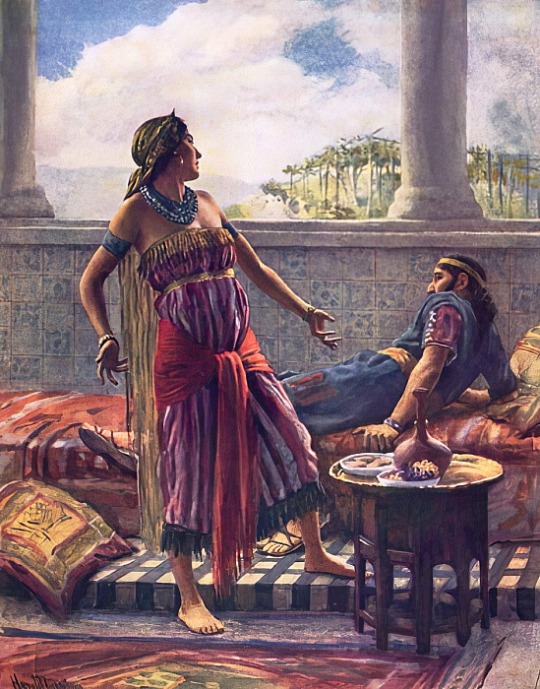
View On WordPress
#Death#Evil#Idol worship#Israel#Jehu#Jezebel#King Ahab#Life#Manipulation#Moral decay#Phonecian princess#Sin#Symbolism
0 notes
Text
The conservatives were right about one, and only one thing. There really is a moral decay in society. Just not in the way they think. We used to believe nazis were bad. We used to believe helping the poor was good. We used to think being a part of a supportive community meant something. We used to not hold greed and selfishness as the highest values. We used to think that families should be supported. We used to think children were our future, and should be safe and well educated. We used to think progress was a good thing.
What they got wrong was what that decay was, and where it came from. The call was from inside the house all along. Evil used to hide itself being a mask of lies and dogwhistles. Now it walks in the open without a hint of shame. And it must be stopped before it's too late.
1 note
·
View note
Text


This is what moral decay looks like. Stealing and murder are illegal and should be. People like this should be locked up in prison
0 notes
Text
"Macbeth: The Tragic Unraveling of Ambition in Shakespeare's Masterpiece"
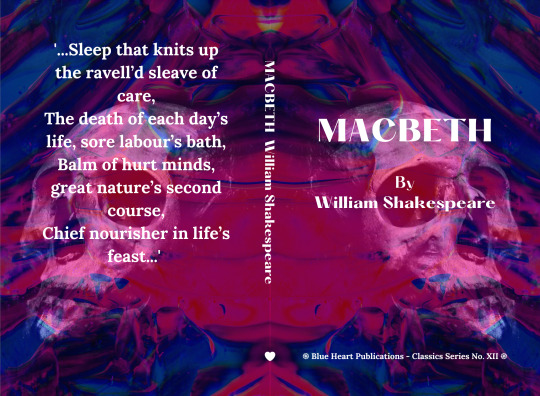
William Shakespeare's "Macbeth" is an immortal tragedy that unfurls a tapestry of human ambition, supernatural forces, and the devastating consequences of unchecked power. Published in the early 17th century, this play has transcended the confines of time, continuing to captivate audiences with its exploration of the darkest corners of the human soul. The title "Macbeth" resonates as an evocative symbol of tragedy, ambition, and the inexorable descent into moral decay.
The play revolves around Macbeth, a valiant Scottish general, whose encounter with three mysterious witches sets in motion a series of events that lead him on a treacherous path to power. As the witches prophesy Macbeth's ascent to the throne, the seeds of ambition take root in his mind, fueling a relentless pursuit of the crown. Shakespeare masterfully delves into the psychological complexities of Macbeth's character, depicting the corrosive effects of unchecked ambition on the human psyche.
The title character's tragic flaw becomes the catalyst for a series of heinous acts, including regicide, betrayal, and a descent into madness. Lady Macbeth, an equally complex figure, adds another layer to the narrative as she grapples with her own ambitions and the consequences of the couple's ruthless pursuit of power. The play unfolds with a relentless momentum, driven by a palpable sense of impending doom that permeates the air.
Shakespeare's language is a testament to his unparalleled mastery, with soliloquies and dialogues that have become iconic in the realm of English literature. The "Tomorrow, and tomorrow, and tomorrow" soliloquy, delivered by Macbeth upon learning of Lady Macbeth's death, encapsulates the play's exploration of the ephemeral nature of life and the futility of ambition. The play's evocative imagery, supernatural elements, and poetic prose contribute to its enduring impact on audiences and scholars alike.
"Macbeth" also engages with themes of fate, free will, and the influence of supernatural forces. The witches, with their cryptic prophecies, serve as agents of fate, pushing Macbeth toward his tragic destiny. The interplay between destiny and human agency adds a layer of complexity to the narrative, prompting audiences to reflect on the fine line between choice and preordained fate.
The play's enduring relevance lies in its ability to resonate with audiences across centuries. "Macbeth" is a timeless exploration of the corrupting nature of ambition and the moral consequences of unrestrained power. It transcends its historical and cultural origins, offering universal insights into the human condition.
In conclusion, "Macbeth" remains a crowning jewel in William Shakespeare's illustrious body of work. The play's exploration of ambition, moral decay, and the consequences of power showcases Shakespeare's unparalleled ability to probe the depths of the human soul. With its tragic narrative, memorable characters, and rich language, "Macbeth" continues to be a poignant and thought-provoking masterpiece that invites audiences to reflect on the enduring themes that define the human experience.
William Shakespeare's "Macbeth" is available in Amazon in paperback 10.99$ and hardcover 18.99$ editions.
Number of pages: 171
Language: English
Rating: 10/10
Link of the book!
Review By: King's Cat
#William Shakespeare#Macbeth#Tragedy#Ambition#Supernatural#Consequences of power#Fate#Moral decay#Tragic hero#Witches#Prophecies#Regicide#Madness#Lady Macbeth#Soliloquy#Iconic quotes#Tomorrow#and tomorrow#Ephemeral nature of life#Free will#Human agency#Universal themes#Timeless exploration#Cryptic prophecies#Destiny#Shakespearean language#Poetic prose#Imagery#Fine line between choice and fate#Historical play
2 notes
·
View notes
Text
"Macbeth: The Tragic Unraveling of Ambition in Shakespeare's Masterpiece"

William Shakespeare's "Macbeth" is an immortal tragedy that unfurls a tapestry of human ambition, supernatural forces, and the devastating consequences of unchecked power. Published in the early 17th century, this play has transcended the confines of time, continuing to captivate audiences with its exploration of the darkest corners of the human soul. The title "Macbeth" resonates as an evocative symbol of tragedy, ambition, and the inexorable descent into moral decay.
The play revolves around Macbeth, a valiant Scottish general, whose encounter with three mysterious witches sets in motion a series of events that lead him on a treacherous path to power. As the witches prophesy Macbeth's ascent to the throne, the seeds of ambition take root in his mind, fueling a relentless pursuit of the crown. Shakespeare masterfully delves into the psychological complexities of Macbeth's character, depicting the corrosive effects of unchecked ambition on the human psyche.
The title character's tragic flaw becomes the catalyst for a series of heinous acts, including regicide, betrayal, and a descent into madness. Lady Macbeth, an equally complex figure, adds another layer to the narrative as she grapples with her own ambitions and the consequences of the couple's ruthless pursuit of power. The play unfolds with a relentless momentum, driven by a palpable sense of impending doom that permeates the air.
Shakespeare's language is a testament to his unparalleled mastery, with soliloquies and dialogues that have become iconic in the realm of English literature. The "Tomorrow, and tomorrow, and tomorrow" soliloquy, delivered by Macbeth upon learning of Lady Macbeth's death, encapsulates the play's exploration of the ephemeral nature of life and the futility of ambition. The play's evocative imagery, supernatural elements, and poetic prose contribute to its enduring impact on audiences and scholars alike.
"Macbeth" also engages with themes of fate, free will, and the influence of supernatural forces. The witches, with their cryptic prophecies, serve as agents of fate, pushing Macbeth toward his tragic destiny. The interplay between destiny and human agency adds a layer of complexity to the narrative, prompting audiences to reflect on the fine line between choice and preordained fate.
The play's enduring relevance lies in its ability to resonate with audiences across centuries. "Macbeth" is a timeless exploration of the corrupting nature of ambition and the moral consequences of unrestrained power. It transcends its historical and cultural origins, offering universal insights into the human condition.
In conclusion, "Macbeth" remains a crowning jewel in William Shakespeare's illustrious body of work. The play's exploration of ambition, moral decay, and the consequences of power showcases Shakespeare's unparalleled ability to probe the depths of the human soul. With its tragic narrative, memorable characters, and rich language, "Macbeth" continues to be a poignant and thought-provoking masterpiece that invites audiences to reflect on the enduring themes that define the human experience.
William Shakespeare's "Macbeth" is available in Amazon in paperback 10.99$ and hardcover 18.99$ editions.
Number of pages: 171
Language: English
Rating: 10/10
Link of the book!
Review By: King's Cat
#William Shakespeare#Macbeth#Tragedy#Ambition#Supernatural#Consequences of power#Fate#Moral decay#Tragic hero#Witches#Prophecies#Regicide#Madness#Lady Macbeth#Soliloquy#Iconic quotes#Tomorrow#and tomorrow#Ephemeral nature of life#Free will#Human agency#Universal themes#Timeless exploration#Cryptic prophecies#Destiny#Shakespearean language#Poetic prose#Imagery#Fine line between choice and fate#Historical play
0 notes